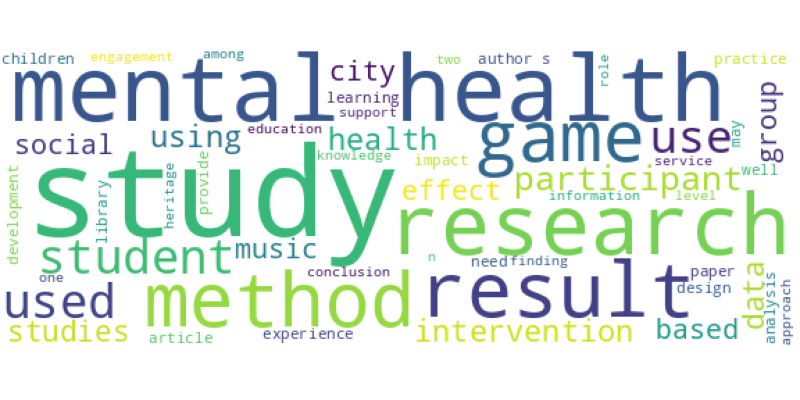| Id | 2602 | |
| Author | Salomon-Gimmon M.; Orkibi H.; Elefant C. | |
| Title | The Contribution of a Music and Arts Rehabilitation Program to the Creative Identity, Well-Being, and Community Integration of People With Mental Health Conditions | |
| Reference | Salomon-Gimmon M.; Orkibi H.; Elefant C. The Contribution of a Music and Arts Rehabilitation Program to the Creative Identity, Well-Being, and Community Integration of People With Mental Health Conditions,Journal of Humanistic Psychology |
|
| Link to article | https://www.scopus.com/inward/record.uri?eid=2-s2.0-85133578561&doi=10.1177%2f00221678221105719&partnerID=40&md5=d2dfc0c82bfedca9d9cadc327a19713a |
|
| Abstract | The United Nations highlighted the importance of promoting the rights of people with mental health conditions (MHC) to education, employment, and citizenship. One related initiative in Israel is the Garage pre-academic music and arts school for individuals with musical and artistic abilities coping with MHC. This process–outcome study examined whether and how the Garage contributes to participants’ creative self-concept, mental health, alleviates loneliness, and promotes postsecondary education and work integration. It also probed the participants’ initial expectations and the extent to which these were fulfilled. Using a single-group pretest–posttest design, quantitative data on the outcome variables were collected, along with mid-test data on process variables from the Garage students (N = 44). Supplementary qualitative data were collected at pretest on the students’ expectations. The results suggest a significant increase in creative personal identity and mental health, a decrease in loneliness, and promotion of postsecondary education and work integration. These findings were associated with persistent attendance, basic psychological needs satisfaction, and expectation fulfillment. A merged analysis indicated that the students’ qualitative expectations were generally congruent with the quantitative results. Overall, the findings show how the program corresponds to humanistic values, targets service users’ needs and rights, and promotes personal recovery and community integration. © The Author(s) 2022. |
|
| Keywords |
Wordcloud:



